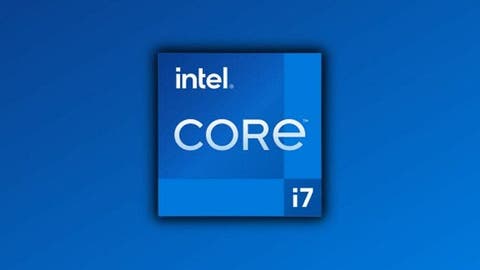Recently, Intel released the first batch of its latest 12th-gen “Aider Lake” processors. At the event, it introduced 6 new processors for desktop computers, including the high-end Core i9-12900K. This is a 16-core chip with 8 performance cores and 8 energy efficiency cores.
Although the first 12th-generation processors are at the desktop level, they can still be interestingly compared with the M1 Pro and M1 Max chips in Apple’s 14-inch and 16-inch MacBook Pro models. There are rumors that Apple plans to launch a new 27-inch iMac computer with the same M1 Pro and M1 Max chips in the first half of the next year.
The first GeekBench 5 benchmark test results of Intel Core i9-12900K show that the processor’s multi-core performance is nearly 1.5 times faster than that of the M1 Pro and M1 Max. Specifically, so far, the average multi-core score of the Core i9 processor is about 18,500. At the same time, the scores of M1 Pro and M1 Max are about 12,500.
In this regard, AnandTech shared more benchmarks to understand performance more closely.
The CPU cores clock up to 3228MHz peak, however vary in frequency depending on how many cores are active within a cluster, clocking down to 3132 at 2, and 3036 MHz at 3 and 4 cores active. I say “per cluster”, because the 8 performance cores in the M1 Pro and M1 Max are indeed consisting of two 4-core clusters, both with their own 12MB L2 caches, and each being able to clock their CPUs independently from each other, so it’s actually possible to have four active cores in one cluster at 3036MHz and one active core in the other cluster running at 3.23GHz.
Intel Core 12th Generation Chips Consume More Power
The Core i9 processor is much faster than the M1 Pro and M1 Max. But it also consumes much more power than Apple’s chips. Intel lists that the chip consumes up to 125W at the base frequency and 241W at the turbo frequency.
In the results of the GeekBench 5 benchmark test, Intel’s 12th-generation Core i7-12700K also seems to be faster than M1 Pro and M1 Max. But it also drains more power.
Apple first announced that it would transition to its own Silicon chip for the Mac in June 2020. But it never said that its chip would be the fastest on the market. Instead, the Cupertino company promised industry-leading performance per watt. The Apple M1 Pro and M1 Max undoubtedly achieved this feat. The performance of these chips exceeds the performance of the Intel-based 12-core Mac Pro (starting at $6,999). Thanks to the impressive energy efficiency, the fan noise is small or even doesn’t exist.
Intel is expected to release the 12th-generation Core processor for notebook computers in early 2022.
Follow Gizchina.com on Google News for news and updates in the technology sector.
